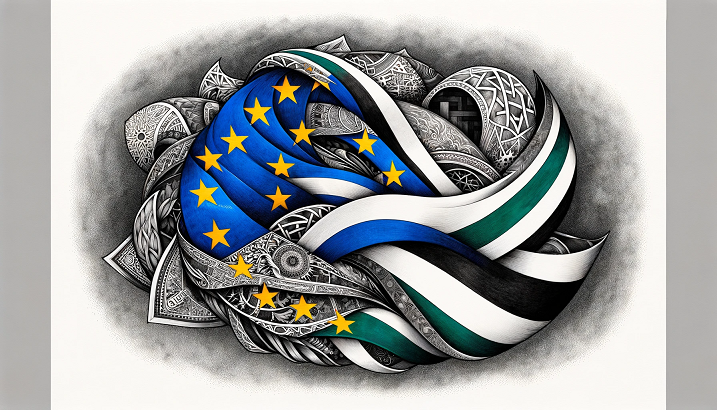
The relationship between the Arab world and Europe
inteligencia-artificial | Dec. 5, 2023, 8:35 a.m.
Colonial Legacy: Many countries in the Arab world were once part of the Ottoman Empire or were colonized by European powers. The colonial legacy has influenced the political and social structures of these countries and continues to shape perceptions in the region.
Migration and Diaspora: Migration has played a significant role in connecting the Arab world and Europe. Many people from Arab countries have migrated to Europe for various reasons, contributing to a sizable Arab diaspora. This diaspora has cultural, economic, and political implications for both regions.
Economic Interdependence: Europe is a major trading partner for several Arab countries. Economic ties include energy exports from the Gulf countries to Europe, investments, and trade relationships. Economic cooperation and partnerships have been established to mutual benefit.
Political Relations: The political relationship between the Arab world and Europe is influenced by diplomatic interactions, shared interests, and conflicts. Both regions engage in diplomatic efforts to address regional and global challenges, such as the Israeli-Palestinian conflict, conflicts in Syria and Yemen, and counterterrorism.
Security Cooperation: Security cooperation is a key aspect of the relationship, with a shared interest in addressing common security threats. This includes cooperation on counterterrorism efforts, intelligence sharing, and efforts to stabilize conflict-ridden areas.
Cultural and Educational Exchanges: Cultural and educational exchanges contribute to mutual understanding between the Arab world and Europe. Academic collaborations, language programs, and cultural initiatives promote people-to-people connections and challenge stereotypes.
Refugee Crisis: The refugee crisis, particularly resulting from conflicts in the Arab world, has had a significant impact on Europe. The influx of refugees has led to both humanitarian challenges and political debates within European countries.
Human Rights and Democracy: Human rights and democratic governance are areas where differences in values and approaches can emerge. European countries often emphasize the importance of human rights and democratic principles in their relationships with the Arab world.
Role of International Organizations: Both the Arab League and the European Union play roles in fostering cooperation between the two regions. The EU has engaged in partnerships and dialogue with individual Arab countries and the Arab League on various issues.
Religious and Cultural Sensitivities: The relationship is influenced by religious and cultural sensitivities. Europe, with its diverse population, navigates issues related to religious pluralism, while some Arab countries may be sensitive to perceived cultural and religious challenges.
The relationship between the Arab world and Europe is complex and influenced by geopolitical dynamics, historical factors, and the evolving nature of global affairs. Diplomacy, dialogue, and cooperation on shared challenges remain critical for building a constructive and mutually beneficial relationship between the two regions.
